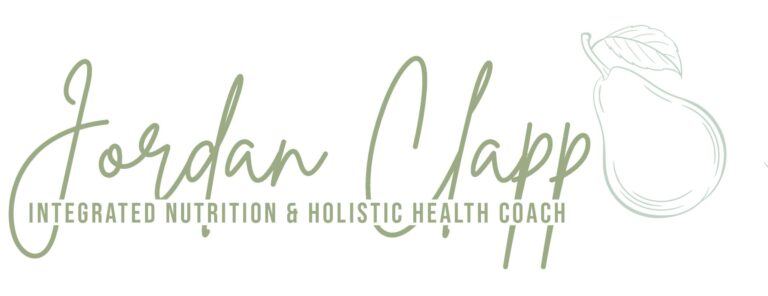Last winter, I went live on social media discussing sick season. It was a very popular broadcast, with lots of people chiming in to add their personal experiences and measures they take to help prevent falling ill during this time of year. When this broadcast popped up in my Facebook memories recently, I decided it was a topic worthy of writing out and posting here for reference. Please remember that each and every one of us have unique needs and circumstances to consider with our health, and that what works for one person/family may not work for all. This information is intended to be educational in nature, and I am not a doctor or licensed healthcare provider. This information is based on my own personal research and experiences, as well as the training and knowledge received through my certification through IIN. As always, I encourage us each to be our own advocates, to research independently and thoroughly, and should you have any concerns regarding options that may be best suited for you, I recommend discussing with your trusted healthcare provider.
Let’s start by recognizing that germs are everywhere. They surround us every day, year round, in various strengths and strains. So why does do we see a substantial uptick in illness during a certain time of the year, generally between November and March in the U.S.? Well, think about what happens during these months. Less sunlight and fresh air, more time cooped up inside, less exercise, more sugar, less nutrient-dense foods, and more stress. All of these changes to our habits and routines wreak havoc on the immune system. And unfortunately, we live in a world that most at such a fast pace, many people are obligated or feel obligated to keep going rather than rest when ill. We’ve all seen this, right? When individuals who should be at home resting and recovering are still out in public, attending work, sending sick children to school or daycare. While I understand the challenges of life demands, this contributes to the duration of and spread of illness. There is no 100% effective, fool-proof method to prevent illness, but if we all do our part as best we can, it can certainly make a difference.
So let’s start with a few basics:
- Wash your hands. Thoroughly and frequently. Practicing good hygiene is the single best way to prevent the spread of illness, yet it often is not practiced properly. Dr. Elisa Song has written a wonderful post about hand-washing methods that are most effective, and which attempts might actually be causing more harm than good. You can read it here.
- Cover your mouth and nose. Again, common sense courtesy and hygiene would be to cover your mouth and nose when you cough or sneeze, but it doesn’t always happen. This prevents the spread of tiny moisture droplets from being projected outward into the air and surrounding surfaces. It is best to cover with the bend of your elbow or a tissue versus your hands, but always remember to wash those hands well afterward anyways.
- Sharing is not caring. Sharing cups, utensils, and so on with others is a great way to spread germs. Lessen that risk by not sharing.
- Be smart when out. When you are healthy and out in public, remember that not everyone else might be. Grocery carts, door knobs, bathroom faucets, and so forth get A LOT of touches each day. Wear a pair of cotton gloves in the store that you can remove when you get in the car and toss in the wash when you get home. Wipe down your car keys, door handles, and steering wheel often. Think about what forms of payment you use. Your credit or debit card can easily be wiped down and is generally touched by only you, where as cash an coins exchange MANY hands often, and aren’t easy to clean.
- Stay home when ill. This one should go without saying, but I’m going to say it again. Not only does going out not honor your body’s needs for recovery, it also puts others at risk. I know that being at the party or gathering, attending work or school, needing to get shopping or errands done, and so forth seem necessary, but truly, these things all pale in comparison to the need of human health. Stay home, and ask for help from others if need be to accomplish what you cannot.
So what natural measures can you take to boost the immune system and lessen the likelihood of illness?
- Be proactive, not reactive. Don’t wait until everyone around you is sick or you start to feel off to take precautionary measures. Often by the time you recognize this and start increasing your efforts, it’s already too late. Support your immune system on a regular basis instead.
- Vitamin D. Vitamin D is an essential part of a healthy body. Very few foods naturally contain Vitamin D, and during winter months, our opportunity to absorb Vitamin D through the suns rays is greatly reduced. More than 3 million people in the U.S. are diagnosed with Vitamin D deficiency each year, and many more are deficient or very low without knowing it. Consider getting your levels checked with your provider, and discuss options for optimizing your levels.
- Stay hydrated. Dehydration seems like a common concern when it is incredibly hot out, but often gets overlooked during cold months. Our bodies require adequate hydration to function properly, including supporting our cells and immune systems. Dehydration also can be noticeable in the winter months through dry skin and dry mouth. We loose hydration through urination, sweating, even breathing! And with the dry air in our homes during winter, we often feel this much more. Consider also adding a humidifier to your bedroom to run while you sleep, and aim to drink at least half your body weight in ounces of filtered water daily.
- Move your body. Yes, I just told you that perspiration can lead to dehydration, but getting our bodies moving and sweating is also a great way to flush toxins from our system. Exercise is so important to overall health, and helps get our lymphatic system going as well.
- Nourish your body. Eating is not the same as nourishing. Sure, I understand that seasonal treats are something we all look forward to. But moderation is key. The more nutrient-rich foods we consume and the less sugar we intake, the better our bodies can combat illness. If you are sick, cutting out sugar and dairy completely can make a big difference in how fast you rebound. Adding fermented foods, herbal teas, and bone broth can be a great way to support the immune system and nourish your body well. You can find my delicious, homemade Better Bone Broth here. Enjoy a cup daily and keep it on hand in the freezer for future use too!
- Detox your system. Detox is a term that scares some people, but it can be incredibly beneficial and not nearly as scary as you may think. Detox happens in small ways daily, through our urine and bowel movements, as well as sweating. Exercise is a great form of detox for the body and mind, and utilizing a sauna or dry brushing regularly can be great choices too. Reducing or eliminating substances like sugar, dairy, or refined carbohydrates from our diets and replacing them with nutrient-rich fuels can also help us flush our systems and keep them strong rather than burdened. Detox baths can also be helpful, as well as detoxing from things that cause stress, such as the news or too much social media, for instance.
- Air it out. In the cold months, we often don’t think about opening the windows and airing out the house, but it can actually be very helpful! So throw those windows open for a few minutes a couple times a week to air things out and let fresh air in. Also consider utilizing an air purifier or house plants that help cleanse the air as well.
- Keep things fresh. Soft surfaces such as bedding, blankets, pillows, stuffed animals curtains, rugs, and shower curtains could all use a good run through the wash too if you haven’t done so in a while, or if someone in your home has been ill recently. Also remember to replace tooth brushes regularly or after illness to prevent the harboring of germs.
- Clean with conscious. Many people break out the chemicals and want to douse everything in disinfectant the second sickness begins. I would highly urge you to evaluate what household cleaning products you are using in your home, and many harm harmful and toxic ingredients in them. Good news is there are much safer and just as effective options available these days, that you can use to keep your home clean without the damaging side effects. Our household has used Norwex microfiber and water to clean for nearly 8 years now and we love the simplicity. I don’t have to worry about chemical residues left behind for my baby or fur baby to come in contact with, but my home still sparkles! If you are curious about switching your routine to something more family and eco-friendly, shoot me a message and I would be happy to provide you more information. Don’t forget to wipe down those often-forgotten spots like the doorknobs, remotes, light switches, cabinet hardware, fridge/freezer handles, purses and backpacks, phones, and keyboards. If you have small children in your house, you already know how they like ot put everything in their mouths! So make sure that you’re not only cleaning their toys and books regularly, but that what you select to do so with isn’t leaving behind harmful films for them to later come in contact with.
- Supplement your efforts. I already mentioned Vitamin D above, but that’s not the only place you may need assistance. Unfortunately, our food supply is not what it used to be. Even with the healthiest of eating habits (and none of us are perfect, right?), supplementation is generally still a good idea to make sure your bases are covered. A quality multivitamin, probiotic, omega, and additional Vitamin C and D could make a world of difference in how well your immune system (well, all of you, really!) functions. However, not all supplements are created equally. Many are loaded with sugar, artificial dyes, flavors, and preservatives, none of which are health-promoting. Make sure you do your research and only chose high quality options. Know what strains of bacteria you are getting and the roles they play, and opt for the most bio-available forms of vitamins and minerals. Avoid synthetic, low grade versions, as these are not well absorbed by the body. If you would like to know what brands I trust for my family’s needs I would be happy to share.
- Essential Oils. High quality, pure essential oils can offer benefits in a variety of ways. From immune boosting to pain relieving, to anti-viral and anti-bacterial properties, there are many oils to chose from to help support your family’s needs. If you are new to essential oils, please familiarize yourself with how to safely use them, as each oil might have its own recommendations. Some of my personal favorites to keep on hand include lavender, peppermint, oregano, lemon, eucalyptus, a pain relief/relaxation blend and an immune boosting blend. I would be happy to connect you to my trusted source for high quality oils.
- Elderberry Syrup. Elderberries offer wonderful health benefits, and have been shown to prevent the intrusion of viruses and bacteria, as well as improve coughs and offer general immune support. You can buy elderberry syrup at many health food stores or pharmacies, as well as on Amazon. As always, read your labels and be sure you select one with a clean ingredient list. Or better yet, make your own! It is easy to do and allows you to control the quality and save money. Win win.
I also love this article by Dr. Elisa Song on Pediatrician-Approved Natural Flu Remedies. This is a great resource for additional ideas on staying well, and how to respond should you find you or a loved one under the weather.
Above all, know that stress negatively impacts the immune system, so stay calm and be informed. By arming yourself with knowledge and preventative measures, there is no need to fear illness. Do the best you can, as much as you can. Support your body so that it can support you back.




